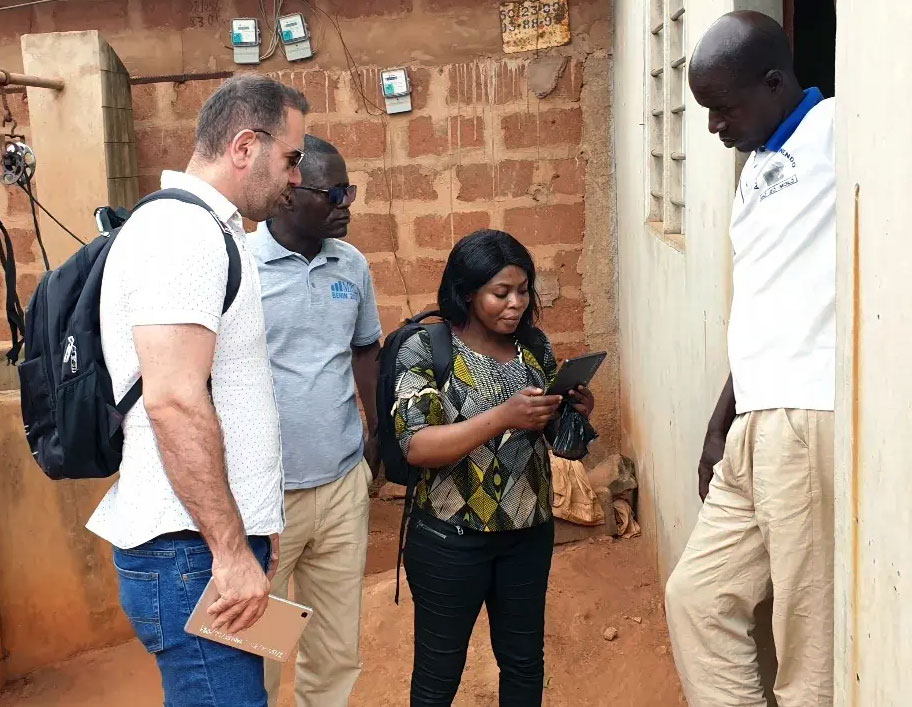In an article published today in Science1, world-leading geospatial data experts at WorldPop (University of Southampton, UK) and the Center for International Earth Science Information Network (CIESIN, Columbia University, USA) declare a global crisis in demographic data collection is quietly undermining public policy, service delivery, and equitable governance. At the heart of this predicament lies the failing ability of nations to conduct accurate and timely censuses – a vital tool for understanding population size, structure, and needs. As international support dwindles and confidence in institutions erodes, the author’s, WorldPop’s Dr Jess Espey and Professor Andy Tatem, and CIESIN’s Dr Dana R Thompson, warn that the only path forward is through co-development: collaborative efforts that blend technology, transparency, and local partnerships.
The situation is urgent. As highlighted during a recent UN Statistical Commission meeting, the number of countries able to conduct and publish reliable census data is in decline2. By mid-2024, nearly a quarter of the world’s population was living in countries that had not yet released results from the 2020 census round. Even when censuses are completed, undercounts are growing, especially among minorities and children. And this crisis is affecting low- and middle-income countries particularly hard. An estimated one in three Africans were likely not counted in the most recent census round.
Without accurate demographic data, governments cannot effectively allocate resources, plan infrastructure, or respond to crises like pandemics or natural disasters. But the problem goes deeper than numbers. An absence of trusted data contributes to political invisibility for entire communities, locking them out of representation and access to essential services.
The COVID-19 pandemic disrupted census operations worldwide, but the crisis is intensified by declining government budgets, technical deficiencies, and falling public trust. And vital international support is disappearing. The ending of the US-funded Demographic and Health Surveys (DHS) earlier this year leaves a deep hole in global health and development statistics. Reducing aid budgets from other nations further threaten the ability of low- and middle-income countries to provide demographic insights.
Yet within this crisis, promising innovations and partnerships are evolving. Satellite imagery, AI-generated building maps, and statistical modelling are enhancing data in hard-to-reach or conflict-affected areas.
But the authors stress that technology alone is not the solution. Building durable, inclusive systems requires co-development: governments, international organizations, researchers, and the private sector must step out of their silos and work together to create systems tailored to local conditions, that can be explained locally by local experts. WorldPop have a wealth of experience in this area3, and projects like the POPGRID Data Collaborative4 and the leadership of national bodies like the Philippines’ National Statistical Authority5, show how coordinated efforts can succeed.
We’re trialling the ‘Deep Dive’ audio summary feature of Google’s NotebookLM. This feature uses AI to create a podcast-like audio conversation between two AI-derived hosts that summarise key points of a document - in this case the Disappearing People article in Science.
As Google acknowledge that NotebookLM outputs may contain errors, we have been careful to check, edit and validate this audio.
Please contact us to let us know what you think.
Music: My Guitar, Lowtone Music, Free Music Archive (CC BY-NC-ND)
References
- Disappearing people: A global demographic data crisis threatens public policy (Science)
- Lessons from the 2020 Round and Planning for the 2030 Round of Housing and Population Censuses in Africa (Presentation to the 56th Session of the UN Statistical Commission, 2025)
- WorldPop global engagement
- POPGRID Data Collaborative
- Improved Data Governance Leads to Better Economic Outcomes for Philippine Citizens (Global Partnership for Sustainable Development Data – pdf)



